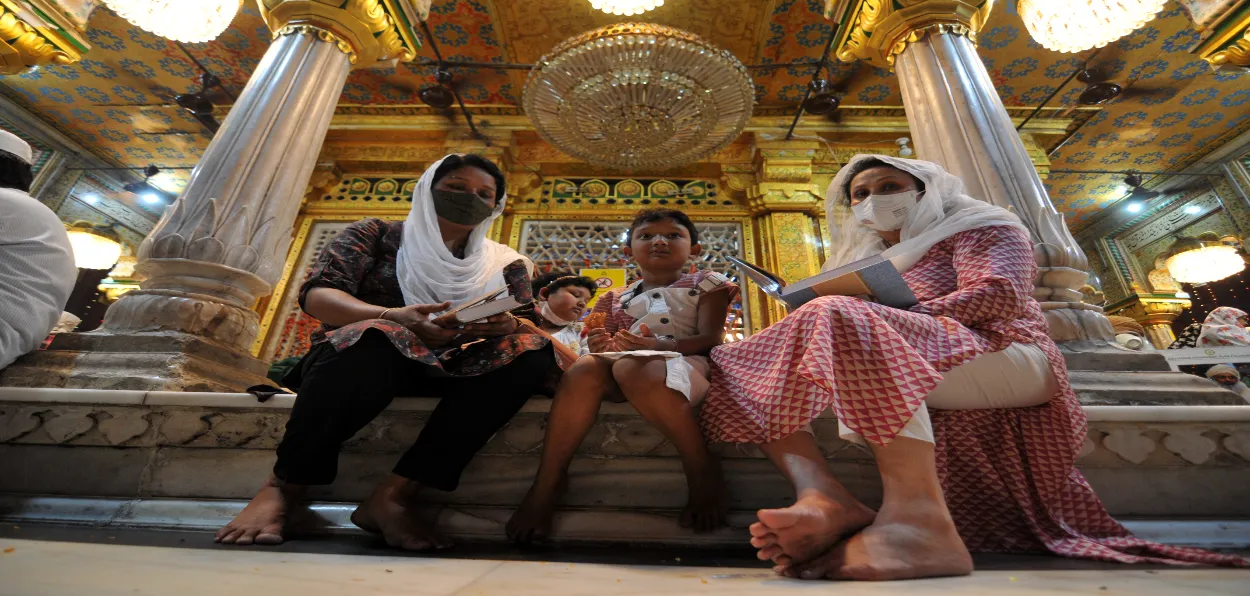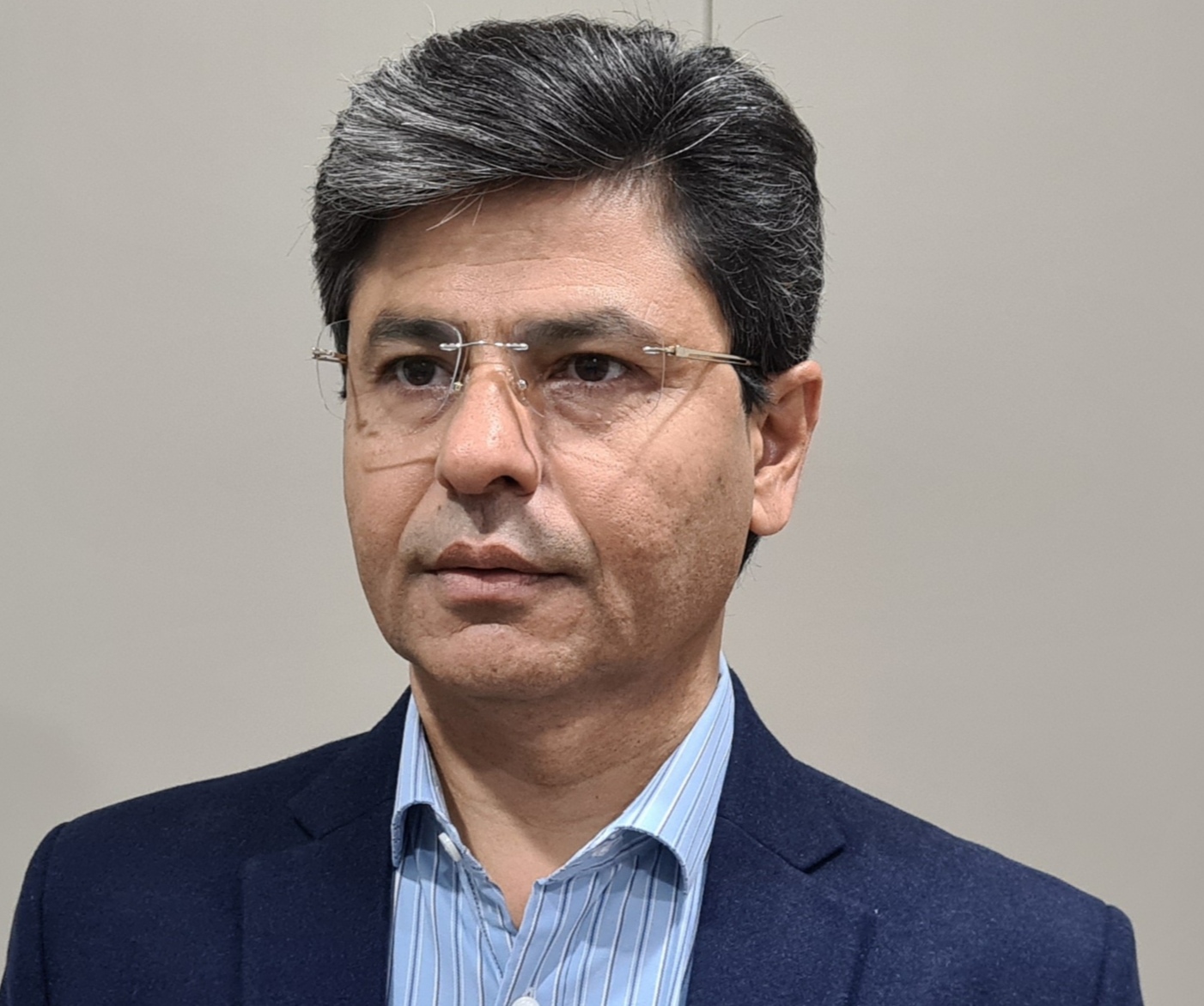
 Atir Khan
Atir Khan
These days while driving on Delhi’s roads you will come across car stickers that say – Hindu. This is something striking; never seen before, and is a new reality. Indian Hindus never liked to wear their religious identity on their sleeves until these stickers surfaced on their cars.
This phenomenon needs to be analyzed.
Hindus love their religion but they were never conscious about their religious identity as they have become today.
After the Partition Indian Muslims became a minority community. The ‘creamy layer’ among them had migrated to Pakistan. Those who stayed back were out of their choice not due to any compulsions.
There are stories of people choosing to live in India as their brothers and families moved to the newly created Pakistan. Back then it was understandable that those who stayed back were worried about their identity hence they chose to stick to their religious identity.
.jpg)
Many muslims stayed back in India even as their brothers and relatives moved to Pakistan in 1947
Muslim groups in India tried to assuage their fears and made them secure about living as a minority community. Though the apprehensions were purely psychological, the actual problems arose eventually.
Muslim groups like Jamait-ulema-Hind did a good job of addressing Muslim concerns and helped the community align with the idea of India and the secular realities of that time. What is remarkable about India is that it gave them equal opportunities to grow without any kind of discrimination.
Those groups created awareness that Muslims’ duties towards their nation are of utmost importance. This was in sync with the principles of Islam which calls for love and responsibility towards one’s nation. Indian Muslims have been mindful of these values to this day and the country has also rewarded them by giving equal opportunities in all spheres.
While such groups were successful in encouraging Indian Muslims to become nationalists, they were not as successful in integrating them into social bonding with Hindus and other communities. Collectively the community fell victim to the needless insecurities of the Partition, which unfortunately have lingered on for too long. Tragically the Muslim identity became a bone of contention in this.
Any human relationship requires continuous nurturing and interaction without these efforts any human relationship tends to die out, just like plants which need constant care. The Muslim identity became an obstacle in the bonding at a time when Hindus were at their liberal best in their outlook. The social integration in the new realities of time that should have started immediately after the Partition did not take off in the desired manner.
The history of communal riots made things worst. Even before the partition, there were communal riots in 1893 (Mumbai). The period between 1921 and 1940 marked a particularly difficult phase. In 1926 there was violence in Calcutta during Muharram and followed by 1948 riots after partition. Two other major communal riots happened in 1961 (Jabalpur) and 1969 (Ahmedabad).
In 1975 there came another opportunity for both Hindus and Muslims to bond. Both RSS and Jamat-e-Islami and other Muslim leaders were imprisoned together during the Emergency.
.jpg)
Many muslims are expressive about their patriotism
Maulana Muhamad Jafar, who has served as secretary general of Jamat-e-Islami in a media interview said that period was a blessing as RSS and Jamat leaders stayed together and got an opportunity to understand each other while they were in prison. But this turned out to be a lost opportunity as this bonhomie was not further developed to sow seeds of social cohesion.
The history of communal riots and the ghettoization of Muslims ensured that they were further marginalized. Crisis management became the order of the day. The gulf started widening.
The political parties of the time only played their cards on the Muslim sentiments of insecurity and their appeasement to convert them into vote banks. In the scheme of things, the community drifted away from the mainstream and was lost in the world it created. They were severed from the main Indian society and the very idea of India. The political leadership failed in stopping this decoupling as it suited them the most.
Ineffective leadership made Muslims wear blinkers. Muslim Intellectuals, who could have played a big role in course correction did not perform their duties and left much to be desired.
The memory of Muslim visionaries like Sir Syed Ahmed became distant. The failure of Muslim intellectuals gave birth to a breed of Muslim political leaders who looked at the community as mere vote banks.
They had no vision and only indulged in the politics of rousing passions. This eventually turned into their obsession with staying in power at the cost of the community. Such brand of leaders has now been called out and they too are on the verge of extinction. But the harsh reality is that much damage has been done over the last seven and a half decades.
Religious leaders have always maintained that in Islam religion and politics are inseparable. If that is true, Muslims have even failed to read the pulse and understand the true nature of Indian politics.
Any religious identity cannot be created in isolation, it is always seen in the context of other communities. If India was a country, where only Hindus lived, perhaps then you would not see those car stickers, which remind us of the lost opportunities of the past.
For Muslims, it’s time to come to terms with the new realities of India and move on.
The Indian Muslims need to learn from other Muslim communities' experiences of adapting to the changes around them. Look at countries like Indonesia, or Saudi Arabia- the land of Islam's origin where fast and hitherto unimaginable changes are taking place.
A community that lacks good leadership continues to live in oblivion. Many Muslim scholars have been saying it is high time to redefine secular values. The community members need to revisit the past and work for a better tomorrow.
What Indian Muslims need today are good leaders who have creative ideas for addressing compatibility issues and improving their conditions. There is truly an urgent need to introspect and draw up fresh plans.
